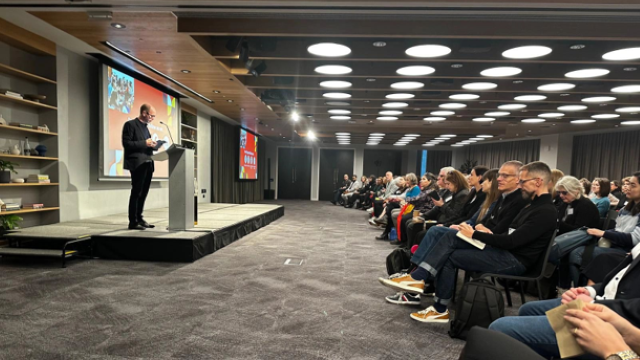-
QUALIFICATIONS
- For Linguists Worldwide
- For UK Public Services
- Preparation
- Policies & Regulation
-
MEMBERSHIP
- Join CIOL
- Membership grades
- NEW for Language Lovers
- Chartered Linguist
- Already a member?
- Professional conduct
- Business & Corporate Partners
-
ASSESSMENTS
- For Second Language Speakers
- English as a Second Language
-
EVENTS & TRAINING
- CPD, Webinars & Training
- CIOL Conference Season 2025
- Events & Networks
- CIOL Mentoring
-
NEWS & VOICES
- News & Voices
- CIOL eNews
- CIOL Awards
- The Linguist
- Jobs & Ads
-
RESOURCES
- For Translators & Interpreters
- For Universities & Students
- Standards & Norms
- CIOL & AI
- All Party Parliamentary Group
- In the UK
- UK Public Services
- Find-a-Linguist
The Importance of Specialised Translation in Engineering

Mark Robinson CL, CIOL Council Member and director of translation company Alexika Ltd writes on the importance of specialised translation in engineering.
In the competitive global marketplace, engineering companies working hard to export their products must ensure that their technical documents, user manuals and product specifications are accurately translated. Unlike general translation, engineering translation requires not only linguistic expertise but also in-depth knowledge of specialised engineering terminology. This combination is crucial to avoid costly miscommunications and ensure compliance with international standards.
An engineering translator must have complete command of both the source and target languages, the target language being their mother tongue. However, fluency alone is not enough. The translator must also understand the context in which terms are used. For example, the word “bearing” in a mechanical engineering text could refer to a component that reduces friction between moving parts, whereas in general English, it might mean someone’s demeanour or posture. Such nuanced distinctions are vital for accurate translations.
Beyond linguistic skills, mastery of engineering concepts and terminology is essential. Each field - whether mechanical, chemical, or civil engineering - has its own lexicon. Translators must stay updated on industry advancements and standards, such as ISO regulations, to ensure their translations align with global expectations. This technical knowledge allows translators to convey complex ideas clearly, ensuring that technical manuals, material specifications or safety guidelines are interpreted correctly by international stakeholders.
Choosing a qualified translation provider can significantly impact an engineering company's success in global markets. High-quality translations build trust with clients, demonstrate professionalism, and ensure that products meet local regulatory requirements. Inaccurate translations, on the other hand, can lead to misunderstandings, project delays, or even safety risks.

Mark Robinson holds a degree in German Studies from Lancaster University and CIOL’s Diploma in Translation. He used his language skills in a career in industrial export sales and marketing, and then as director of translation company Alexika Ltd. Mark is a Member of the Chartered Institute of Linguists, a Chartered Linguist and a member of CIOL Council.
This post originally featured on the Alexika blog.
Views expressed on CIOL Voices are those of the writer and may not represent those of the wider membership or CIOL.
Filter by category
More
The Chartered Institute of Linguists (CIOL), Incorporated by Royal Charter, Registered in England and Wales Number RC 000808 and the IoL Educational Trust (IoLET), trading as CIOL Qualifications, Company limited by Guarantee, Registered in England and Wales Number 04297497 and Registered Charity Number 1090263. CIOL is a not-for-profit organisation.








